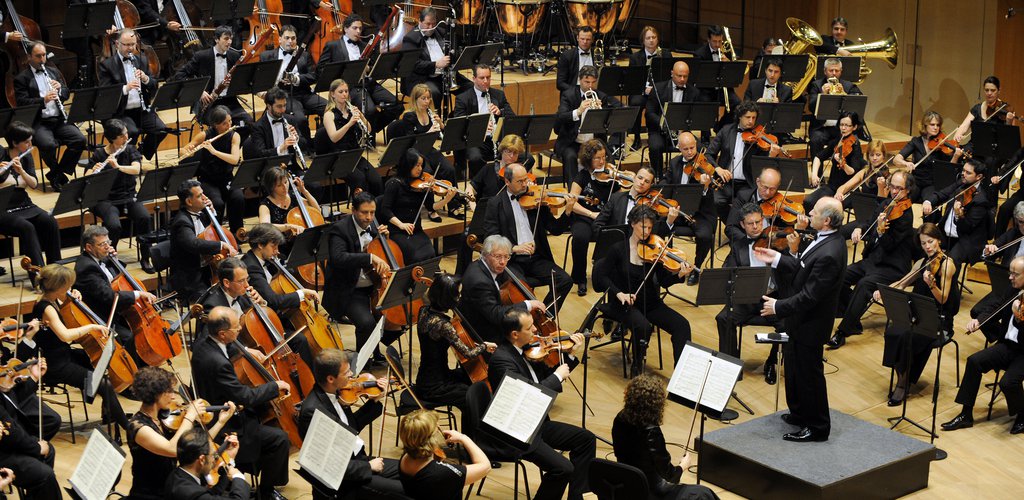The Festival Orchestra was founded by conductor Iván Fischer and pianist Zoltán Kocsis, and initially worked as an independent association of musicians with non-permanent members. In 1992, it became Budapest's permanent orchestra under an agreement concluded by the BFO Foundation and the Budapest City Council. To share the costs, the City Council agreed to pay the wages of the musicians and the management, and the foundation would cover every other cost. This solution also ensured artistic autonomy, since the music director was appointed by an independent non-profit organisation working as a foundation, and the managing director was nominated by the City Council based on a recommendation of the foundation. However, this “dual operation” caused increasingly more problems and conflicts, and therefore the parties agreed in 2000 that the BFO Foundation should take over the full operation of the orchestra.
The main task of the non-profit organisation is to establish the financial, legal and personnel conditions for the orchestra’s operation and to maintain its artistic standards; its Board members are music-lovers and private individuals living in Budapest who consider the purpose of the Festival Orchestra important, i.e. the need for a world-class orchestra in Budapest and Hungary. Over the past thirty years, the BFO has attracted enthusiastic fans and supporters, and the music foundation is even supported by the prevailing Ministry of Culture and the Budapest City Council, as well as private individuals.
The music and artistic director and conductor of the orchestra with more than 100 musicians is still Iván Fischer, while the current guest conductor is Gábor Takács-Nagy. The BFO’s unrelenting success is mainly due to the fact that its orchestral work has continuously been renewed, shaped and reshaped from the outset, its initiatives, the unique manner of rehearsing and the new types of concert have all been the subject of various studies all over the world. Iván Fischer has introduced a number of innovative initiatives in recent decades, for example he integrated various artistic periods, which also involved broadening the musicians’ performing culture and instrumental skills. This led to the establishment of the BFO’s Baroque ensemble playing on period instruments in recent years, but there is also a contemporary ensemble performing new music.
The Festival Orchestra has given a number of debut performances both in Hungary and abroad, the latest premiere of Iván Fischer’s works was in October 2013 in the Millenáris Theatre in Budapest. The orchestra’s recordings of Bartók, Liszt and Dvořák pieces have won several international awards, amongst others, two Gramophone Awards, the “Oscar” of classical music, and Awards by Diapason d’Or, Telerama and Le Monde de la Musique.
The BFO has enjoyed resounding success and popularity with its chamber orchestra concerts, the Cocoa concerts for small children, the Haydn-Mozart series, where selected members of the orchestra take to the stage as soloists, the One Forint Dress Rehearsals at Heroes’ Square compèred by Iván Fischer, and the free open-air concerts that attract tens of thousands of people. In a departure from tradition, the venue for the latter event has been the Open Air Theatre on Margaret Island since 2012. The orchestra performs more than sixty concerts a year, not only in Budapest, but also in towns around the country on a regular basis.
The Budapest Festival Orchestra is a permanent guest in major musical centres around the world – such as Carnegie Hall, Lincoln Center, Konzerthaus Wien, Concertgebouw Amsterdam – as an ambassador for Hungarian culture. The orchestra’s emotionally gripping play offers unique experiences to music-lovers irrespective of their age.
In 2007 the Festival Orchestra won the Dutch Classical Music Award. In 2008 internationally acclaimed music critics deemed the BFO to be 9th on a list of the 20 best orchestras in the world, before famous orchestras such as the New York Philharmonic or the Boston Symphony Orchestra. In 2012 the Budapest Festival Orchestra received five stars for its concert at the Royal Festival Hall in London, and in 2013 its recording of Mahler's Symphony No. 1 was even nominated for a Grammy Award. In addition, the orchestra’s The Marriage of Figaro performance ranked first on the New York Magazine’s list of the ten best classical music events in New York this year.
cultura.hu


